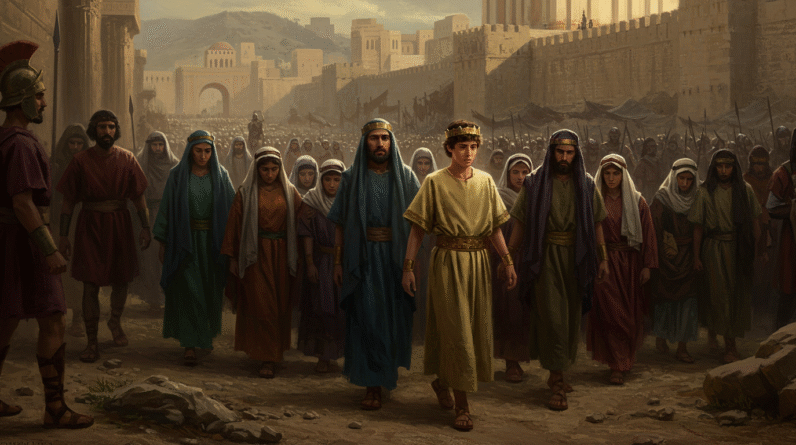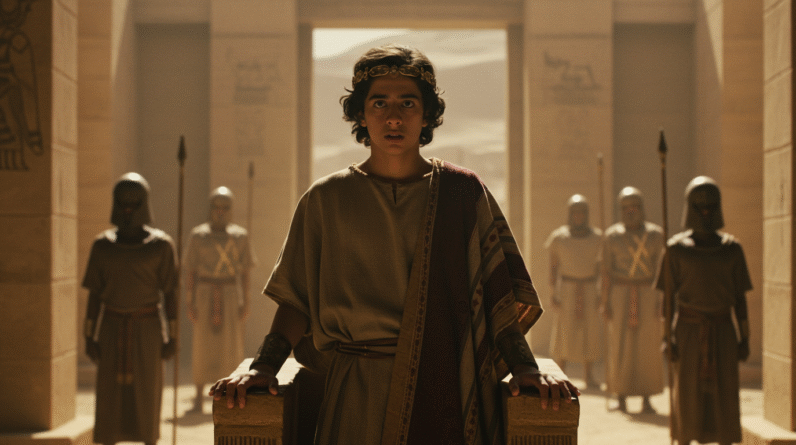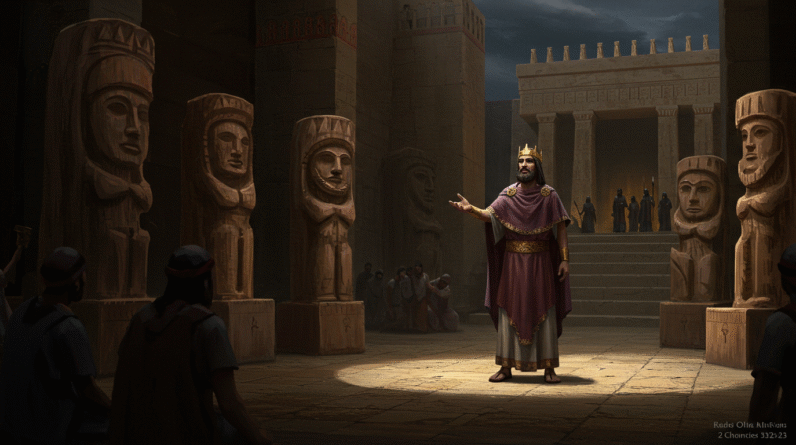Discover Jehoram, the fifth king of Judah, whose reign during tumultuous times offers lessons in leadership, ambition, and faith. Delve into his life and legacy.
Jehoram: The Fifth King of Judah
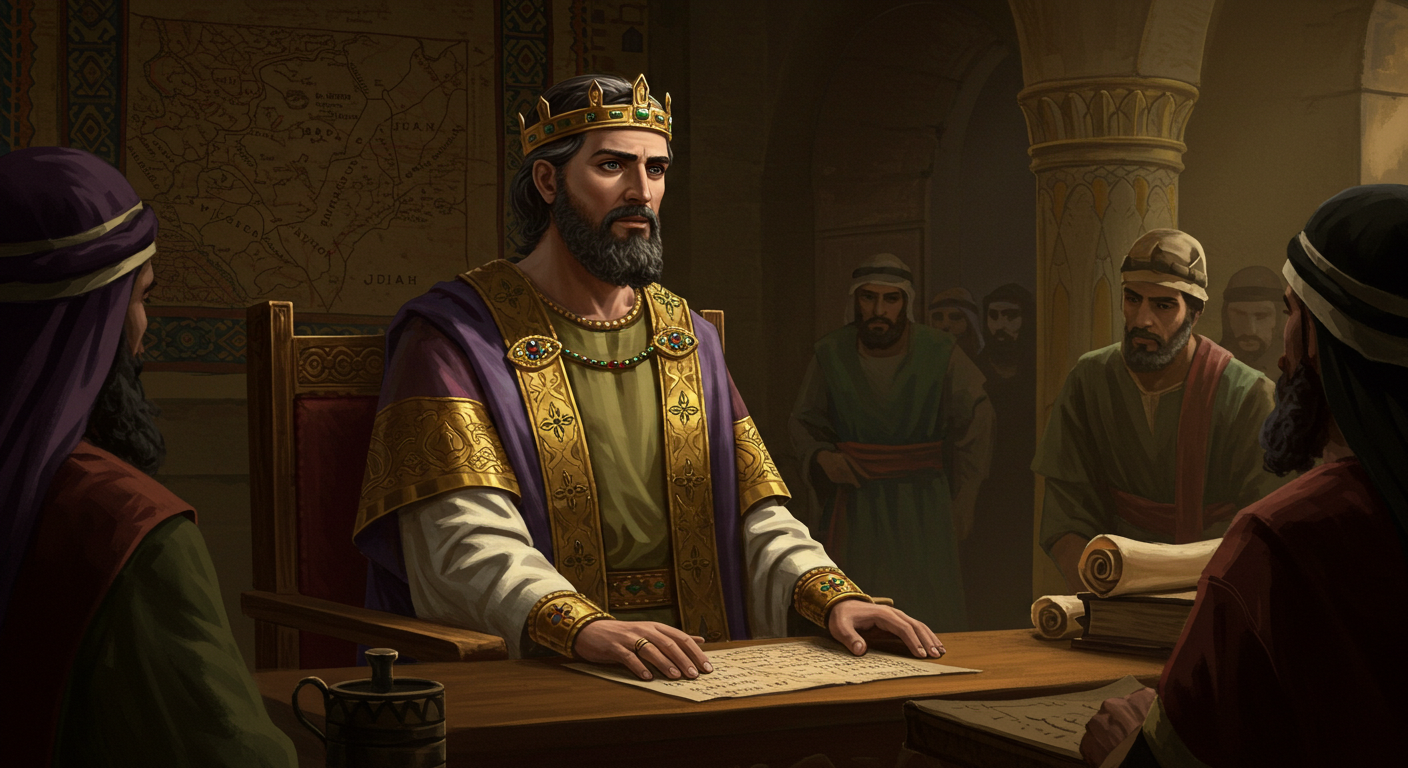
I. Introduction
Have you ever wondered what it takes to lead a nation during a tumultuous period marked by political intrigue and familial rivalries? Meet Jehoram, the fifth king of Judah, whose reign is chronicled in the pages of biblical history. His story, nestled in the heart of the Old Testament, offers an intriguing glimpse into a king’s life full of challenges and divine interventions.
Brief Overview:
Jehoram, also known as Joram, took the throne of Judah during a critical time in Israel’s history. His leadership, though controversial, played a significant role in shaping the spiritual and political landscape of the nation. Despite facing numerous challenges, including family betrayals and foreign threats, Jehoram’s reign is an essential chapter in the narrative of Judah’s monarchy.
Thesis Statement:
Jehoram’s tenure as the ruler of Judah reveals the complexity of leadership amid familial conflicts and the consequences of straying from divine mandates. His story provides valuable insights into the impacts of ambition, power, and faith on a leader’s legacy and should be examined diligently for lessons in both personal and communal leadership.
II. Historical and Cultural Context
Israel in Jehoram’s Time:
During Jehoram’s reign, Judah was enveloped in a complex tapestry of tribal allegiances, foreign threats, and spiritual disobedience. The kingdom was grappling with the idolatrous practices that had seeped into its social fabric, eroding the covenant relationship with Yahweh. Politically, Judah was navigating uneasy alliances, particularly with the northern kingdom of Israel, under the shadow of powerful neighbors like Aram and Edom.
Setting the Stage:
Jehoram’s ascent to power was influenced by these challenging conditions. The spiritual malaise, combined with external pressures, necessitated strong leadership. However, Jehoram’s choices often exacerbated the nation’s troubles rather than resolving them, highlighting the fine line between political acumen and spiritual negligence.
III. Biographical Overview
Early Life and Calling:
Jehoram was the son of Jehoshaphat, a king who strived to walk faithfully in God’s ways. Raised in the royal court, Jehoram was groomed to ascend the throne. Yet, his marriage to Athaliah, daughter of Ahab and Jezebel, marked a significant turning point, as he was influenced by the idolatrous practices of the house of Ahab, which ran contrary to Judah’s traditions.
Major Milestones and Events:
- Ascension to the Throne: Jehoram’s rule began with a violent purge of his family members to secure his position (2 Chronicles 21:4).
- Alliance with Israel: Through matrimonial alliances, Jehoram solidified Judah’s ties with Israel, a relationship fraught with religious compromises (2 Kings 8:18).
- War with Edom: His reign was marked by military encounters, notably with Edom, which sought independence during his rule (2 Chronicles 21:8-10).
IV. Key Biblical Narratives and Passages
Primary Scripture References:
- 2 Chronicles 21:1-7: Details Jehoram’s accession to the throne and the moral decline that ensued.
- 2 Kings 8:16-24: Chronicles Jehoram’s association with the house of Ahab and his consequent turn from God’s ways.
- 2 Chronicles 21:12-15: Includes a striking letter from Elijah prophesying judgment due to Jehoram’s unfaithfulness.
Contextual Analysis:
The accounts of Jehoram’s reign in Chronicles and Kings emphasize the theological implications of obedience versus rebellion. His alignment with Israel through Athaliah marked a pivotal departure from the Deuteronomic tradition that called for exclusive worship of Yahweh. Jehoram’s story serves as a cautionary tale against the spiritual complacency and moral compromises that can arise in political alliances.
V. Leadership Qualities and Challenges
Core Leadership Traits:
Jehoram displayed determination and decisiveness, albeit often for personal gain rather than national welfare. His willingness to take drastic measures for political stability underscores his commitment to maintaining power, yet it also reveals a lack of wisdom and humility.
Challenges and Controversies:
Jehoram’s reign was rife with challenges, from internal family divisions to external threats. His most contentious act was the execution of his brothers, an action that secured his throne at the cost of his family’s unity (2 Chronicles 21:4). Furthermore, his introduction of idol worship, influenced by his wife and her lineage, prompted divine retribution and prophetic condemnation.
VI. Legacy and Impact
Immediate Impact:
Jehoram’s rule plunged Judah into a period of instability and spiritual decline. Under his leadership, the kingdom experienced significant losses, both in territory—like the rebellion of Edom—and in spiritual integrity.
Long-Term Influence:
Despite his failings, Jehoram’s reign elucidates the perils of syncretistic worship and the importance of adhering to one’s covenantal identity. His decisions laid the groundwork for succeeding generations to reevaluate their spiritual loyalties and political strategies.
Modern Relevance:
Jehoram’s life compels us to ponder the implications of leadership decisions driven by ambition and alliances. In a contemporary context, his story serves as a reminder to weigh the moral and ethical dimensions of leadership against immediate political gains.
VII. Scriptural and Scholarly Analysis
Comparative Analysis:
Comparing the accounts in Chronicles and Kings reveals nuanced differences. Chronicles focuses more heavily on divine judgment and moral lessons, while Kings emphasizes the political dynamics. These varying perspectives provide a fuller understanding of Jehoram’s impact on Judah’s history.
Theological Implications:
Jehoram’s life prompts a theological reflection on the role of divine punishment as a response to idolatry and unfaithfulness. His story raises questions about the balance of covenant blessings and curses in the context of Israel’s relationship with God.
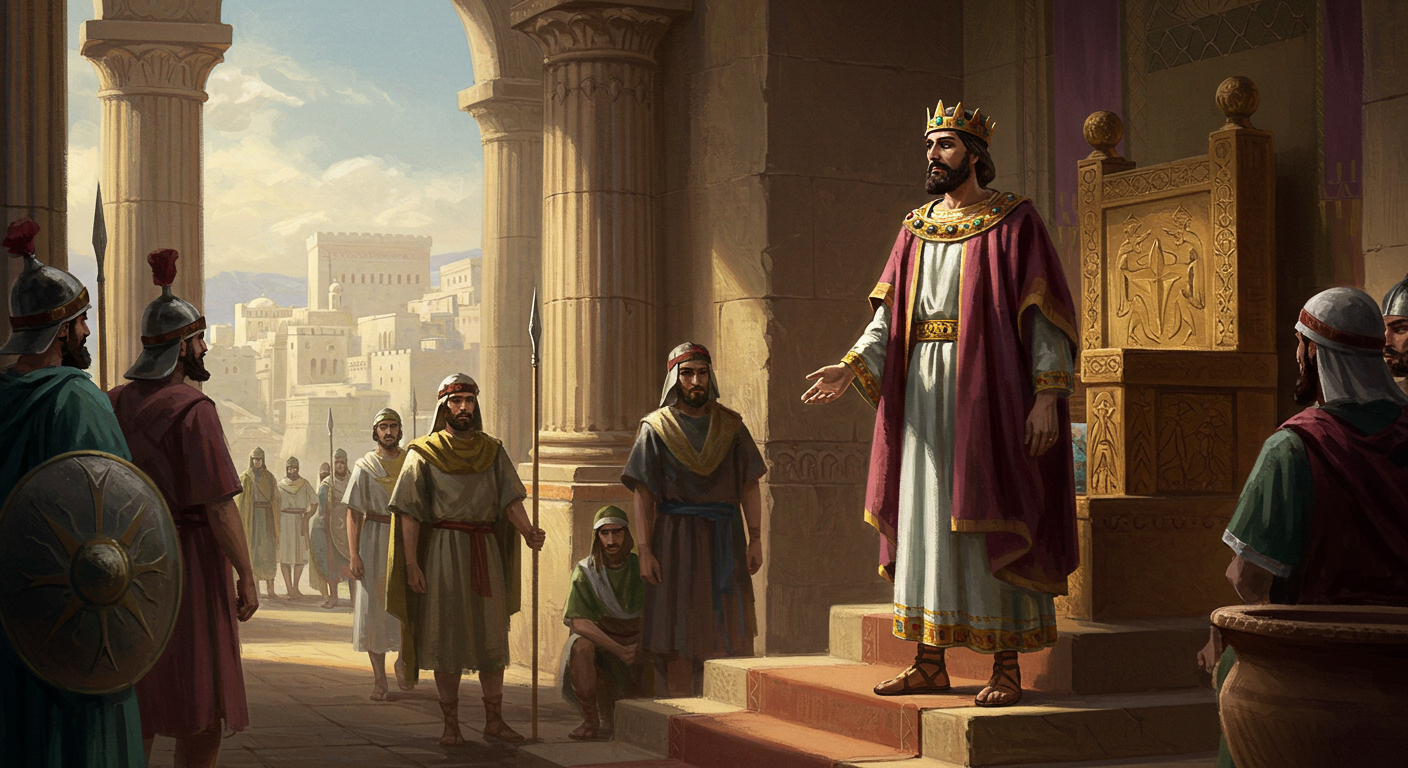
VIII. Conclusion
Summary of Key Points:
Jehoram’s reign as the fifth king of Judah illustrates the intricate interplay between political leadership and spiritual fidelity. His actions offer a cautionary tale about the perils of deviating from divine instructions and succumbing to external influences.
Final Reflections:
Reflecting on Jehoram’s legacy, we are reminded that leadership encompasses not only the exercise of power but also adherence to ethical and spiritual principles. His story serves as a timeless lesson on the significance of maintaining one’s covenantal commitments.
Call to Reflection or Action:
As you consider Jehoram’s life, ask yourself: What legacy will my decisions create? How can I ensure that my leadership is rooted in principles that promote the welfare of others and align with my core values?
Feel inspired? Clap for this article, share your thoughts in the comments, and join our Medium newsletter for more insightful explorations into biblical history and its modern implications.



